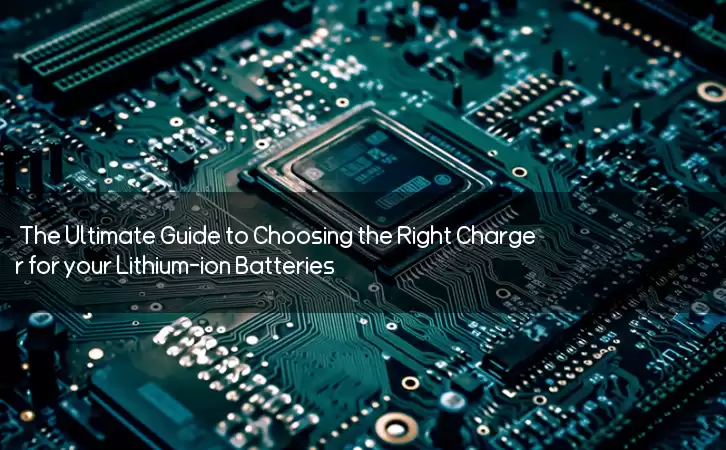Information Center
The Ultimate Guide to Choosing the Right Charger for your Lithium-ion Batteries
Published:2023-07-13 00:35:31 Author:Green WCND Views:35Lithium-ion batteries are highly efficient and durable, making them a popular choice for a variety of devices such as smartphones, laptops, and electric cars. However, it is essential to use the right charger to ensure the proper functioning and longevity of these batteries. In this article, we will discuss what chargers work with lithium-ion batteries.

First, it’s essential to understand how lithium-ion batteries work. They consist of a cathode, an anode, and an electrolyte. When the battery is charged, lithium ions move from the cathode to the anode, storing energy. When discharging, the ions move back to the cathode, releasing energy.

There are different types of lithium-ion batteries, and each has its charging requirements. The most common lithium-ion battery types are lithium cobalt oxide, lithium iron phosphate, and lithium manganese oxide. Each has a different voltage, temperature range, and charging rate, which means that each requires a specific charger.
Most charging devices for lithium-ion batteries have a USB port, making them compatible with a wide range of devices. However, it is essential to choose a charger that has the correct voltage range and charging rate to prevent overcharging or undercharging the battery. Overcharging can lead to battery damage, while undercharging can reduce the battery’s lifespan and capacity.
When selecting a charger, the voltage and amperage should be compatible with the battery’s specifications. The voltage required by the battery is usually listed on the device or in the user manual. The amperage indicates how quickly a battery can be charged. However, charging at high amperage can damage the battery’s cells and reduce its lifespan. Slow charging is usually the best option for lithium-ion batteries.
Another important factor to consider is the temperature range. Lithium-ion batteries have a specific temperature range for optimal charging. Charging at high or low temperatures can damage the battery and reduce its lifespan. It is best to use a charger that can maintain a consistent temperature while charging the battery.
In conclusion, lithium-ion batteries are a great option for many devices due to their efficiency and durability. However, choosing the right charger is crucial to ensure the battery’s proper functioning and longevity. When selecting a charger, consider the voltage and amperage, temperature range, and charging rate to prevent damage to the battery. With the right charger, lithium-ion batteries can continue to provide reliable power for years to come.
Battery testers of different voltages exhibit significant differences in several aspects, and a 12V battery tester is primarily used for testing a range of spec···
Battery Testers (battery capacity testers/battery detectors) indeed come in various types tailored for different products. These different types of battery test···
The advantages and disadvantages of battery testers are as follows:AdvantagesFlexibility:Battery testers can accommodate various testing modes, making them adap···
Understanding the testing accuracy of golf cart battery testers is crucial for ensuring the precision of test results. Here are some methods to assess the testi···





